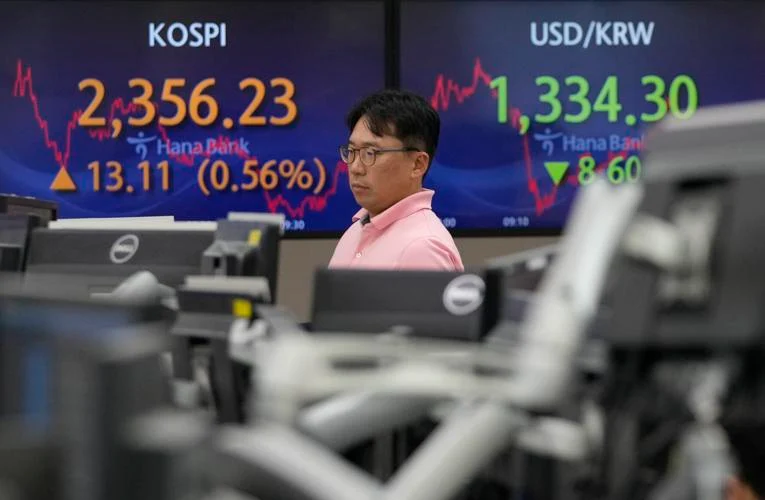
Wall Street steamrolled even higher Friday as it closed out its best week in nearly a year.
The S&P 500 climbed 40.56 points, or 0.9%, to 4,358.34 and rose every day of the week. The Dow Jones Industrial Average gained 222.24, or 0.7%, to 34,061.32, and the Nasdaq composite jumped 184.09, or 1.4%, to 13,478.28.
Stocks surged through the week on rising hopes the Federal Reserve is finally done with its market-crunching hikes to interest rates, meant to get inflation under control. A report on Friday underscored that pressure is easing on inflation after it showed employers hired fewer workers last month than economists expected.
It’s a stunning turnaround from just a week ago, when Wall Street was reeling after the S&P 500 had fallen 10% below its high point for the year. That sent Wall Street’s main index into what investors call a “correction.”
Since then strong profit reports helped drive some stocks to towering gains. Generac, a maker of backup generators, soared nearly 28% for its best week since its stock began trading in 2010. At Expedia Group, another stronger-than-forecast report sent its stock nearly 22% higher for its best week since the market was surging out of the coronavirus crash in early 2020.
Before this week, stocks had been struggling under the weight of rapidly rising Treasury yields. Those yields were in turn catching up to the Fed’s main interest rate, which is above 5.25% and at its highest level since 2001.
Higher rates and yields slow the economy, hurt prices for investments and raise the risk of something breaking within the financial system, such as the three high-profile U.S. bank failures that rattled financial markets during the spring.
“It was really fear that the Fed was going to go too far,” said Katie Nixon, chief investment officer for Northern Trust Wealth Management.
The Fed put such pressure on the economy intentionally, hoping to starve inflation of its fuel. It wants the job market to cool, particularly pay raises going to workers. The Fed fears too-strong pay gains could create a vicious cycle that keeps inflation high.
Analysts said Friday’s jobs report offered encouraging signals for the Fed, with average hourly earnings rising less in October from September than expected, though it doesn’t mean the job is done.
Treasury yields in the bond market tumbled immediately after the jobs report, releasing more of the pressure that had built up on Wall Street. The yield on the 10-year Treasury eased to 4.52% from 4.67% late Thursday and from more than 5% last week, when it hit its highest level since 2007.
Of course, that sharp fall in yields could also end up hurting investors in the long run. Fed Chair Jerome Powell said this week that the central bank may not need to hike rates any more if the recent rise in yields stays “persistent.” Such high yields could slow the economy and push down on inflation by themselves, without requiring the Fed to hike rates again.






